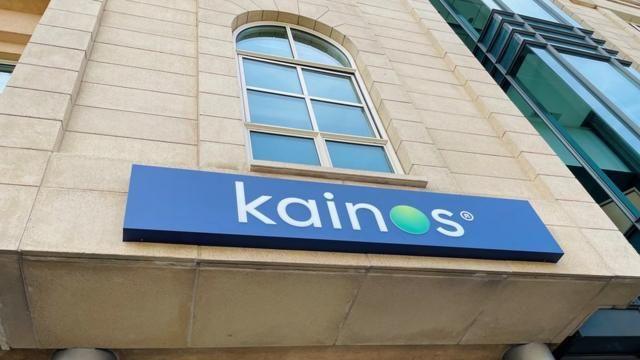Profits at IT firm Kainos up 14% to ВЈ77m

The IT firm specialises in helping organisations digitise their operations
- Published
Kainos, the IT firm which is one of Northern Ireland’s largest businesses, made a pre-tax profit of £77m last year.
That was up 14% on the previous year’s £68m profit, while turnover grew by 2%, from £375m to £382m.
Sales at the company’s core digital services division fell 5%, as some private-sector customers cut their spending.
Chief executive Russell Sloan said it had been a "disciplined" performance against an uncertain economic backdrop.
He said the fall-off in digital services reflected more cautious spending by financial services clients and that there would not be an immediate recovery in that sector.
Kainos specialises in helping organisations digitise their operations and counts UK government departments among its major clients.
It employs almost 3,000 people across its global operations and will soon start building a new HQ in Belfast city centre.
Chief executive of Kainos Russell Sloan said it had been a "disciplined" performance against an uncertain economic backdrop
Growth in the business last year was mainly in the company’s Workday divisions - a suite of financial management and HR software.
Kainos helps companies deploy and manage Workday as well as creating its own Workday-compatible products.
The company said the Workday-related products showed "very strong growth", with sales increasing by 28% to just over ВЈ57m.
The company’s workforce grew only marginally last year after a period of rapid hiring which had seen staff numbers effectively doubling since 2019.
Mr Sloan said the decision of Fujitsu to stop bidding for UK government IT work would not mean more opportunities for Kainos.
"We don’t really compete with Fujitsui," he added.
"A lot of their work would have been large, outsourced managed service contracts and some hardware contracts. It’s not really our space.’
Related topics
- Published16 April